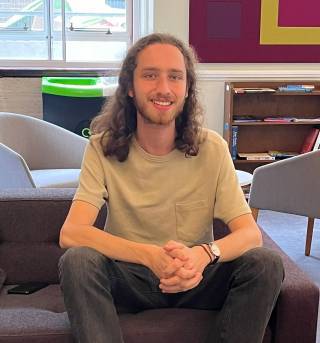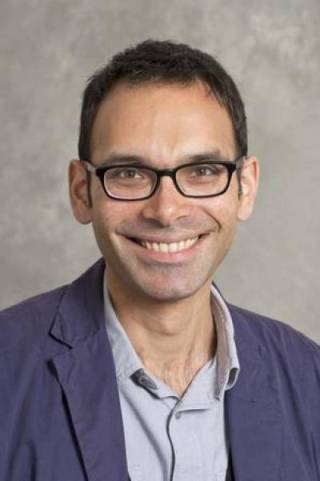Recap the Inaugural Lecture of Professor John Sabapathy - 'Goodbye Cockaigne! Working, eating, & laughing in the Anthropocene, 1250-2023'.
Watch the Lecture
Event Report
“The natural world continues to surprise us. But since Darwin's time, it has changed beyond recognition... transformed by a powerful force. Us. We will see how animals are adapting in extraordinary ways to survive the new challenges they face. At this crucial time in our history, we must now look at the world through a new lens.”
With these words, David Attenborough introduced the first episode of his new series, Planet Earth III. The Anthropocene – the idea that we have entered a new era in which human activity is having a significant impact on the planet – has gone mainstream. Professor John Sabapathy’s inaugural lecture was centred around an intriguing question: how can history help us address this new era?
Professor Sabapathy proposed that a re-examination of medieval and early modern fantasies of Cockaigne provides us with a deeper historicised understanding of the Anthropocene. The era is fuelled by ‘human fantasies of superfluity’ which are evident in historical visions of Cockaigne – a fantastical utopia in which the natural world is composed of ready to eat food and no one needs to work.
Professor Sabapathy took his audience through four historical visions of Cockaigne, originating from: Picardy in c. 1250; Ireland in the 1330s; Antwerp in 1546 and Brussels in 1567. In the 1250s, Cockaigne was mobilised as a critique of the violence and iniquity of the social system. The Irish Cockaigne text was a satire, likely Franciscan in origin, of other religious orders. The Dutch prose text of 1546 ridiculed popular images of Cockaigne, by suggesting that farting would be a well-renumerated career and criminals would be ‘punished’ with free and luxurious food. The final example, which Sabapathy referred to as ‘Cockaigne rethought’, is Pieter Bruegel’s Das Schlaraffenland. Bruegel’s painting presented a more ambiguous reading in which human desires are satisfied, leading to the upturning of both the social order and individual purpose. Sabapathy proposed that Bruegel was exploring the problem, posed by rapid social and economic change in the early modern Low Countries, of what would happen to the feudal system in a context of abundance.
All four examples, whether hopeful, critical or ridiculing of the imaginary land of Cockaigne, portrayed a world in which nature was entirely assimilated to human desires. Sabapathy argued that they, therefore, represented a desire for the Anthropocene before the Anthropocene. This approach problematises the dominant vision of the Anthropocene which focuses on its novelty rather than the long historical processes which have formed our contemporary relationship to nature.
His suggestion that we have always been Cockaignians, a play on Bruno Latour’s famous claim that we have never been modern, neatly encapsulated the theoretical stakes of his argument. In We have never been Modern (1991), Latour noted how modernity was commonly understood to encompass the double mission of ending man’s domination of man and increasing man’s domination of nature. The visions of Cockaigne through which Sabapathy led us show that this mission has a far longer history.
Sabapathy’s genealogy of anthropocenic desires served as an entry into the methodological problem, fundamental for historians and the academy in general, of the relationship between scholarship and contemporary challenges. His lecture was a masterful display of how historians can use their training to illuminate public understanding of how we arrived at our current climate emergency.
The determination to contribute, through engaged historical research, to public debate, has been a constant thread in the career which we were celebrating at his inaugural. Sabapathy’s turn to the Anthropocene came after a series of publications centred on institutions and institutional rationality which did not just tell the story of medieval institutions but also queried whether we can take any inspiration, or notes of caution, from our forebears’ approaches. Sabapathy’s first monograph – Officers and Accountability in Medieval England (2014) – and his inaugural lecture both embark on an ambitious balancing act. He aims to simultaneously foreground the historically specific features of the worlds, both real and imagined, he describes while encouraging the reader to ask what can be gained from excavating the manifold similarities between the concerns and solutions present across different epochs.
Sabapathy urged historians never to be content with solely presenting findings of antiquarian interest, instead they must always ask themselves ‘so what?’ His doctoral students needed no reminder of his adherence to this maxim. Today, history departments across the country face funding shortfalls and closures. In this context, his lecture seemed to be a plea to two audiences to remember their respective responsibilities. The responsibility of historians to the problems of the present and of governments to the study of the past.

 Close
Close


